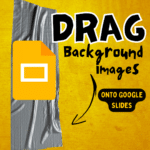Developing Questioning Strategies:
What types of questions do I need to ask and when should I ask them?
Powerful Practices Series:
The Power of Questioning: Guiding Student Investigations
By Julie V. McGough and Lisa M. Nyberg
Publisher: NSTA Press: National Science Teachers Association
© 2015
Focus: Justifying Questions
As authors of the popular NSTA Press book The Power of Questioning: Guiding Student Investigations, we get a lot of questions from readers. One of the top questions we get is, “How do we hold the learners accountable with questions?” Here is what we tell readers: The questions we choose chart the course of the discussion. Questions serve many purposes. Questions help students connect concepts, think critically, and explore logic and understanding at a deeper level. Questions can help teachers check for understanding. Questions can extend students’ thinking by requiring the students to justify their answers.
Provide Evidence and Support Ideas
One emphasis of the Common Core English/Language Arts standards includes “asking and answering questions to demonstrate understanding” and “engaging effectively in a range of collaborative discussions.” Teachers may engage students in this type of discussion by asking justifying questions that hold the learner accountable for their learning. This type of question requires the student to provide evidence and support their ideas.
For example the teacher may ask the student, “Why do you think that?” or “What evidence supports your idea?” The way the teacher asks the question is very important. If the teacher asks questions with an inquisitive tone of wonder, the student will see that the teacher really wants to know what they are thinking and really wants to understand their logic and evidence. If the teacher asks the question with a sharp or critical tone, the question seems more like an interrogation. When teachers ask justifying questions with a constructive, inquisitive tone and intent a dynamic discussion is launched.
To learn more about ways to optimize questioning in your classroom, check out:
The Power of Questioning: Guiding Student Investigations
By Julie V. McGough and Lisa M. Nyberg
Amazon Link:
http://www.amazon.com/Power-Questioning-Guiding-Students-Investigations/dp/1938946286/
NSTA Press Link:
http://www.nsta.org/store/product_detail.aspx?id=10.2505/9781938946288








